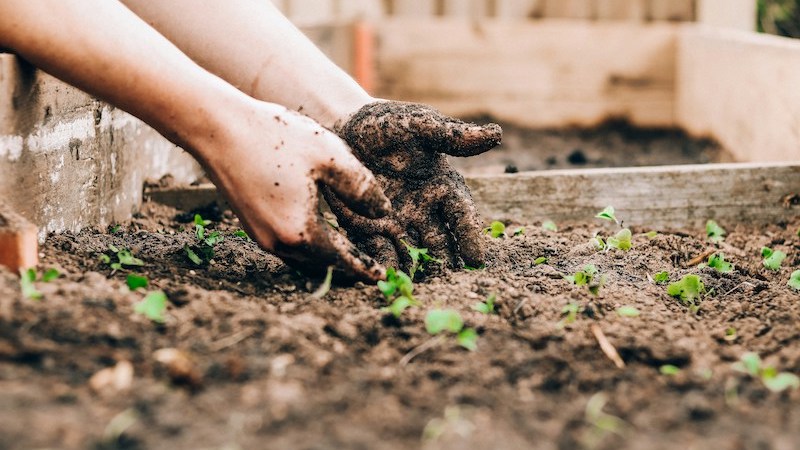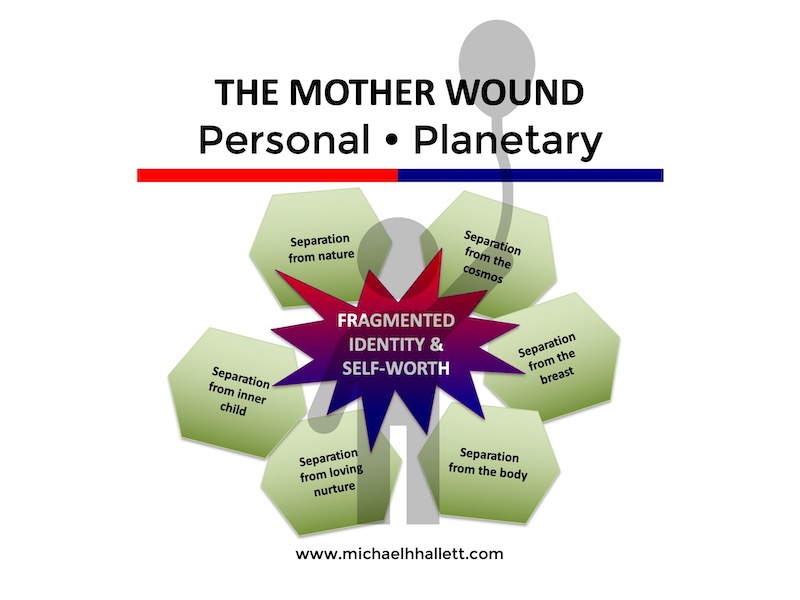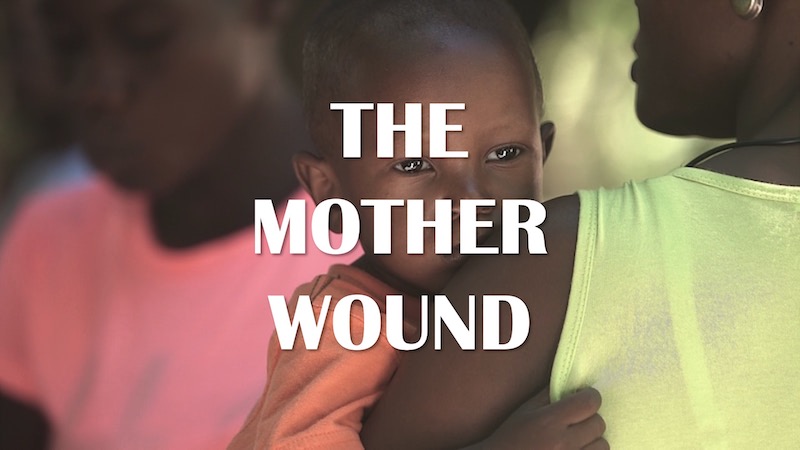The mother wound – nurturing tasks are classed as ‘menial’
- 8 November 2024
- Posted by: Michael H Hallett
- Category: Mother wound ,

In our woundedness, what we most need is genuine emotional nurturing. Yet, because of our woundedness, we classify those tasks that would actually nurture us—physical tasks that embody genuine nurturing—as menial, something slavish to be avoided and delegated.
What are menial tasks?
Wikipedia describes a menial job as “a job that requires low skills, is low paid, involves repeating the same tasks, and is perceived in society as being of low value.”
This includes roles such as factory and warehouse staff, fast food restaurants, and basic clerical work. Menialwork also includes household tasks such as childrearing, cooking, cleaning, and gardening.
It’s very noticeable that as soon as families acquire wealth and status these latter tasks are quickly outsourced to wet nurses, nannies, au pairs, maids, cooks and gardeners. In The History of Childhood, Priscilla Robertson writes that in 19th century Europe, “the very definition of a middle-class family was that it should keep at least one servant.”
The tragic irony of outsourcing these supposedly menial tasks is that the servants also suffer from a lack of nurturing. This creates a self-reinforcing cycle that perpetuates the underlying mother wound.
Menial tasks and the mother wound
In What is the mother wound? I describe how climate change across the Sahara, Middle East, Arabia and Central Asia from around 4000 BC caused drought, desertification and famine so severe that it fundamentally altered the human condition.
The psychological necessity to numb out the pain of constant famine shifted the human psyche from a balanced, masculine-feminine combination of thinking and feeling to a masculine-dominant, all-thought-no-feeling paradigm that in time created patriarchy.
At the heart of this shift lay a breakdown in the mother-child bond, leading to arrested development of the mother-child, father-child and pubertal development arcs.

Doing simple repetitive tasks like cooking, cleaning, washing and gardening provides parents with ample time to imbue their children with a healthy sense of worth while learning community, communication, boundaries, and healthy sexuality.
Classifying these tasks as menial and delegating them to workers at the lower end of the socio-economic—and, by extension, psychological wellbeing—scale puts responsibility for genuine emotional nurturing into the hands of those least equipped to provide it.
The wealthy household is no better equipped to provide it, yet it is they who bear responsibility. Instead, they wash their hands of these “low value” tasks and focus on the material rewards of upward social mobility.
The life cycle
I chose this image by Sandie Clarke with dirty hands because of the connection between these ‘menial’ nurturing tasks and the ‘dark’ side of the life cycle.
In a blog titled We’ve rejected the dark side of the life cycle, and that is what ails us, I wrote:
“The life cycle is the eternal cycle of generation, degeneration and regeneration through which life recycles and cleanses itself to remain healthy. This cycle can be split into two halves—its light and dark sides.
The light side of the life cycle is the outer, more visible side. Its colour is green. New spring growth. Blossom. Daffodils poking through snow. A stream twinkling under dappled light. Birds (well, most birds) flitting and twittering. Small furry animals. Cat videos on Facebook. Cute kittens and puppies. Dazzling tropical fish. Human beings (provided they meet socially approved ideals of body shape and size).
The dark side is the inner, less visible—or even invisible—side. Its colour is brown. Autumn leaves falling and turning to mould. Barren fields in winter. Worms. Bacteria. Vermin. Vultures and other carrion birds. Scavengers. Rats and mice. Bodily functions. Excrement.”
The mother wound is the place where we’ve disconnected from life itself, in all its cyclic glory; it’s growth, flowering, decaying and composting. Reconnecting to that cycle—and maintaining the connection—means reframing so-called menial tasks as the critical development activities they truly are.
Excuse me. I need to get my hands dirty.
Next steps
For further resources on the mother wound, both free and paid, please click on this image.
Photo by Sandie Clarke on Unsplash

